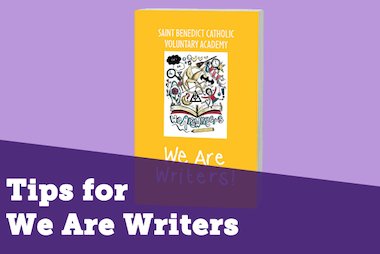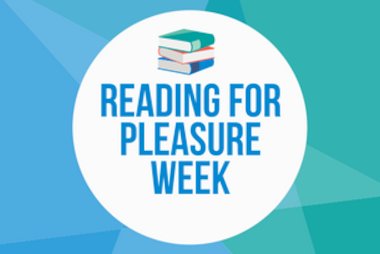How to keep kids excited about reading when World Book Day is over
World Book Day may be over for another year but keeping your children buzzing about books is essential if they are to build a reading habit. So, what measures can you take to ensure your children are raring to read?
Make time
School timetables are busier than ever but making time to read aloud to your class will have a lasting impact on their reading experiences. The books we read to children are frequently more challenging than the books they can read themselves and so they provide children with vocabulary, sentence structures and themes that they may otherwise not experience. Making time to share books with children also creates shared experiences that knit the members of the class together. If you are struggling to make time to read aloud to the children in your class, you could experiment putting story time at a different part of the day such as straight after lunch in Key Stage Two or during snack time with younger pupils. As a school, you could also look at reading short stories and picture books that support your assembly or collective worship themes and count these as one of your story times.
Create a spine
To ensure consistency and progression in the books you share, create a spine of books and poems to read aloud to the children. This should include old favourites, contemporary fiction, poems, and picture books. Involving all the staff in creating this spine is a good idea as they will have their own particular favourites, but they will also know which books children have particularly enjoyed listening to.
Regular reading
To help children build reading habits, regular time to read independently in school can be beneficial. This is particularly the case for children who may not have books or a place to read at home. Just a few minutes in school each day to read independently can make the world of difference to a child who may not read at home. To make sure these sessions are as pleasurable as possible, the children should have choices about what they want to read. Some will want to read their graded reader, but they may also want to read a picture book, a graphic novel or an information book about a preferred topic. Making sure your classroom book corner is stocked with a range of books that match the interests of the children, and that are pitched at the range of reading abilities in the class, means that everyone can choose a book for independent reading time.
Familiarity
Lots of children like to choose books that you’ve read during story time, so including these in your book corner is a good idea. It’s also worth having other titles by the same author, and books in series which many children like to work their way through – sometimes in competition with their friends!
Involve parents
Building strong reading relationships with parents will also help you maintain the love of reading fostered through World Book Day. Holding events where you talk about books and how to support reading at home is something that most schools do. If you’re struggling to get these meetings off the ground, you could create videos explaining how to support children with reading and add them to your school website. Inviting parents into school for fun reading themed events such as Books and Bears, where younger siblings can come in and hear a story being read by a member of staff, or Cream Tea and Read sessions where you provide tasty treats to enjoy while parents get to read with their children can really help you promote books and reading as pleasurable whilst having the added bonus that you build important relationships with parents.
Authors and illustrators
Bringing authors and illustrators into school is a great way to build a buzz about reading. Prepare for the visit by sharing your visiting author’s or illustrator’s books in story times leading up to the event. Once the visit has taken place, include your visitor’s books in classroom book corners and the library where they are certain to fly off the shelves.
School budgets are tight at the moment, which means there are fewer author and illustrator visits taking place than in the past. A cost-effective alternative is to take part in online author and illustrator events that bring the author into your classroom via your interactive whiteboard.
Books for everyone
Ensuring your school library is stocked with appealing books is vital for keeping the book love alive. There should be a good range of fiction, non-fiction, poetry, picture books and graphic novels for all age groups. You will also want HiLo books for older children with low reading ages and challenging reads for advanced readers. To ensure children have access to books when school is closed is also a good idea to build links with your local Public Library (if you have one). It can be difficult to take children to the local library, so asking your local librarians into school where they can enrol the children and promote their books and activities can be a good way to ensure all children become members. The launch of the annual Summer Reading Challenge run by The Reading Agency can be a good time to do this.
Book displays
Make books and reading visible by creating book-based displays around the school. These could include book recommendations written by children, images of staff reading their favourite children’s books, and displays of recent book arrivals.
Stock their favourites
Making sure you have books that children want to read will help you build reading habits that last. Your library management system will tell you which books are borrowed most frequently but asking the children themselves gives you important feedback about which books they like, don’t like and what they’d like you to buy. If you have a local Schools Library Service, they often provide a recommendation service where they tell you about the best new books. They also offer loan services which means you can borrow their recommended reads while keeping an eye on your budget. And if you’re looking for a money-saving way to keep your library stocked hold a Book Fair. Not only do children enjoy looking at and buying the books from the fair, but the commission generated can be used to buy books for the library.
World Book Day is a wonderful event for promoting reading but to build lasting reading habits we need to ensure that Books are for Life and Not Just for World Book Day.
Rachel Clarke is an independent literacy consultant who works with education professionals to improve all aspects of English teaching in the Primary Years. During her 28 years in primary education, she has held positions of English Subject Leader and Deputy Headteacher and has worked as an English Consultant for Coventry Local Authority.
Scholastic is a provider of quality resources and children’s books and book events including the following:
The Scholastic Reading Audit – a free audit tool for schools to assess the teaching of reading in their setting
Similar Posts
-

Alternative ways to keep children reading all year round!
Time to bring some literacy-themed fun into your classroom!
-

Tips for We Are Writers
Saint Benedict Catholic Voluntary Academy have printed their pupils’ work in a We Are Writers book for six years! We asked them what they loved about the project and what their tips are for doing it successfully.
-

Reading for Pleasure week 2018
Between 23rd-27th April 2018 Scholastic will be celebrating Reading for Pleasure week.

